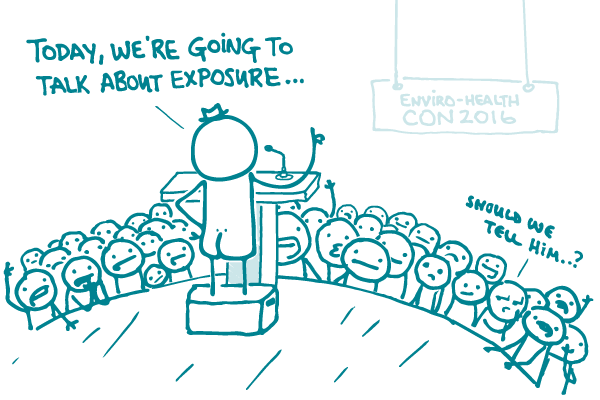
If you’re communicating about environmental health, it’s likely that you’ve encountered the word “exposure” many times. Environmental health professionals just love it. But the rest of us? Not so much.
The term tends to conjure up images of trench coats and scandal. If you’re into photography, “exposure” means something else entirely. Or perhaps, if you were old enough to stay up past 9 p.m. in the early 1990s, it makes you think of a really great TV show set in Alaska. And if you actually live in Alaska, you might picture someone shivering outside in the snow.
Must we use this complicated and problematic term? No! There are lots of ways around using “exposure” when you write about health. Here are a few common uses of the word with suggested alternatives.
Before: Every day, millions of Americans are exposed to secondhand smoke.
After: Every day, millions of Americans breathe in secondhand smoke.
Before: Exposure to mercury can cause serious health problems.
After: If you come into contact with mercury (by touching it or breathing in fumes), it can cause serious health problems.
Before: More than half of our exposure to radiation comes from radon.
After: People are around radiation every day. Surprisingly, most of this radiation doesn’t come from microwaves or x-rays. It comes from radon gas.
The next time you’re tempted to use the word “exposure,” try one of these more decent alternatives instead.
The bottom line: “Exposure” isn’t a word we use in everyday conversation, so skip it when you can!
Browse recent posts